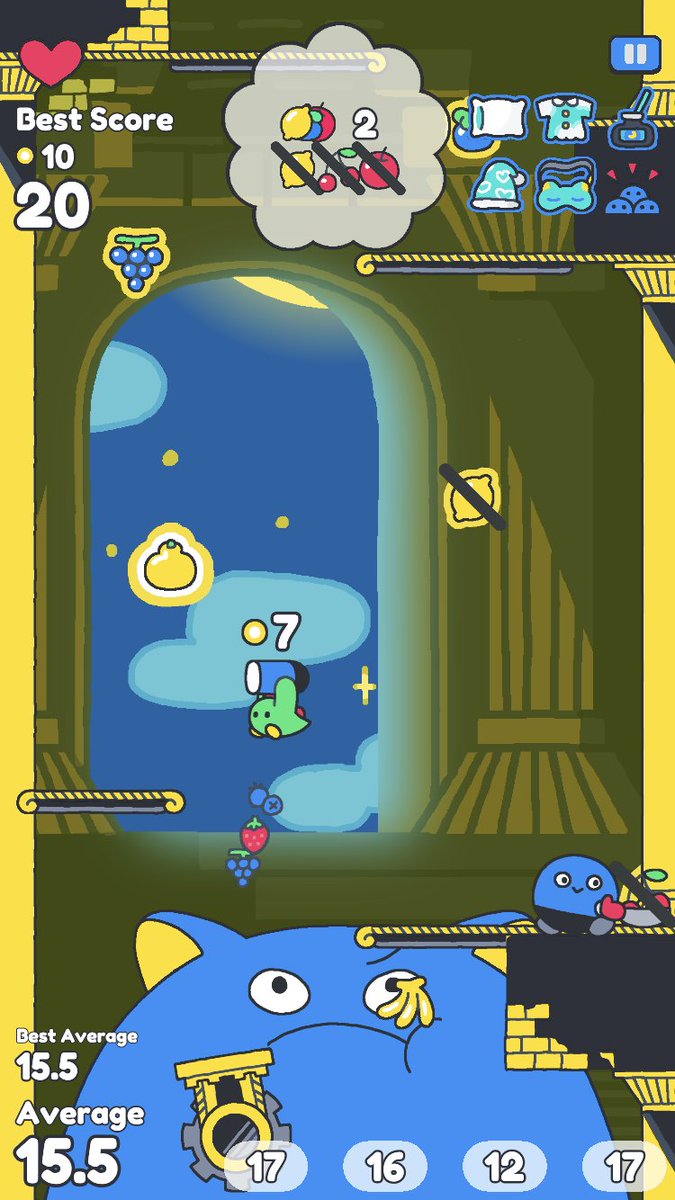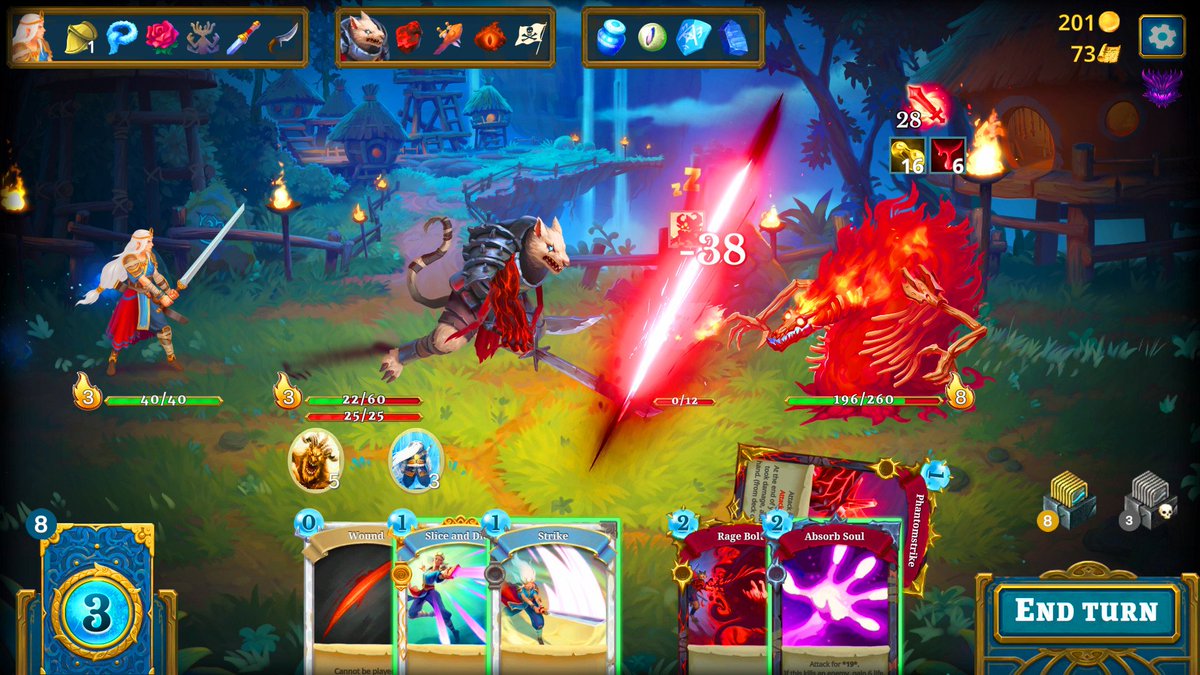
Always nice to find support for one's #GameDesign thoughts in academia!
This great piece by @dingstweets, @Marc_M_Andersen, @JulianKiverste1 and @PredictiveLife connects to @raphkoster's Theory of Fun and some of my own musings: frontiersin.org/articles/10.33…
Details below! 🧵
1/10
This great piece by @dingstweets, @Marc_M_Andersen, @JulianKiverste1 and @PredictiveLife connects to @raphkoster's Theory of Fun and some of my own musings: frontiersin.org/articles/10.33…
Details below! 🧵
1/10

One of the core findings is concerned with players not being as much after success as they are after improvement, i.e. reducing failure or "expected error" or, simply, learning. The more of this they get (per time played), the better.
2/10
2/10

I wrote about this phenomenon here: gamedeveloper.com/design/why-ele…
My thinking back then was based on @Qt3's "Chick Parabola". You traverse phases of competence until you're so good at a game that the additional value (i.e. "error reduction") per time stops being worth it.
3/10
My thinking back then was based on @Qt3's "Chick Parabola". You traverse phases of competence until you're so good at a game that the additional value (i.e. "error reduction") per time stops being worth it.
3/10
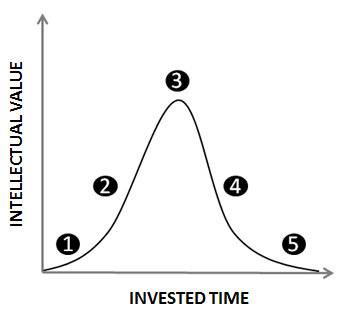
Back to the article, where "optimal challenge" (in the sense of flow theory, i.e. confronting players with challenges matching their skill) is described as a path to allowing players to maximally reduce their error rate, i.e. learn the most.
4/10
4/10

I've previously written about how even single-player games could make use of "matchmaking" systems and adapt to the player's skill: gamedeveloper.com/design/the-res…
I recently revisited this in a thread on #roguelike games:
5/10



I recently revisited this in a thread on #roguelike games:
https://twitter.com/Ludokultur/status/1554130286014865408
5/10
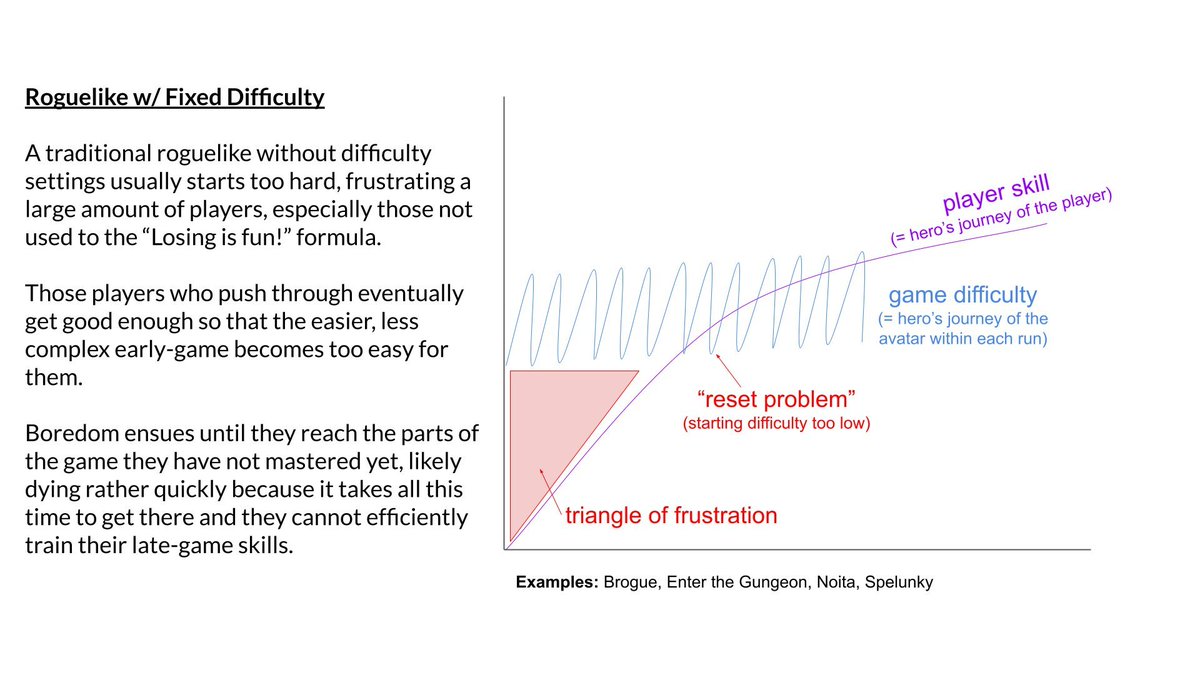
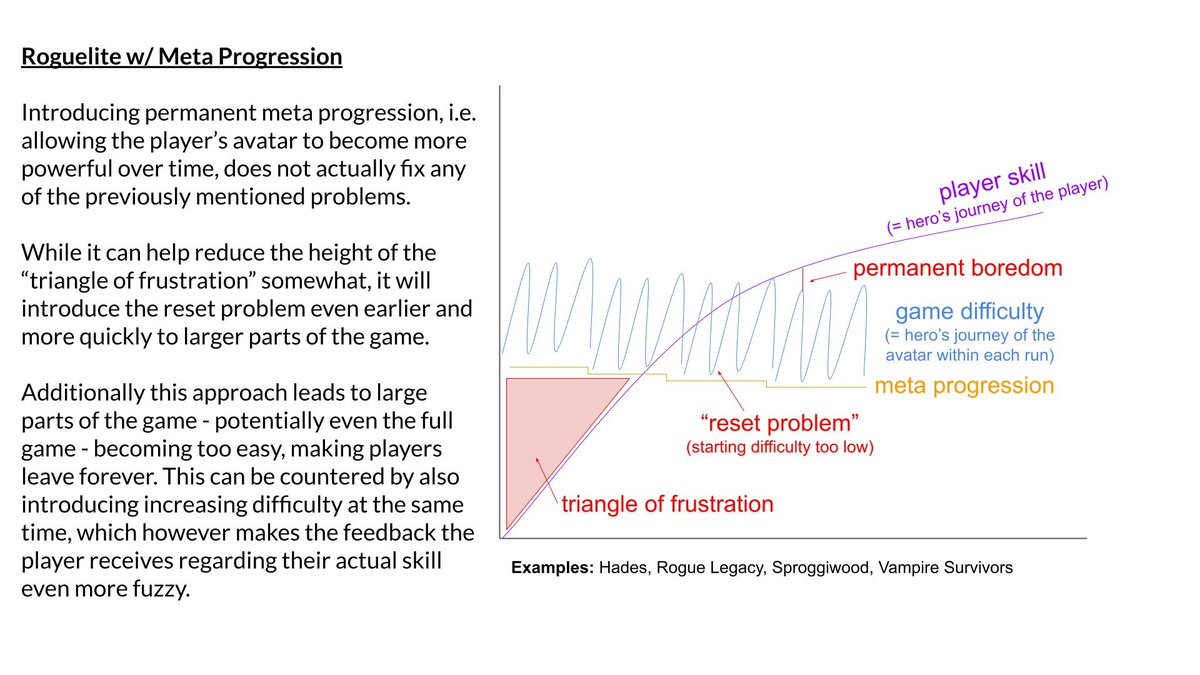
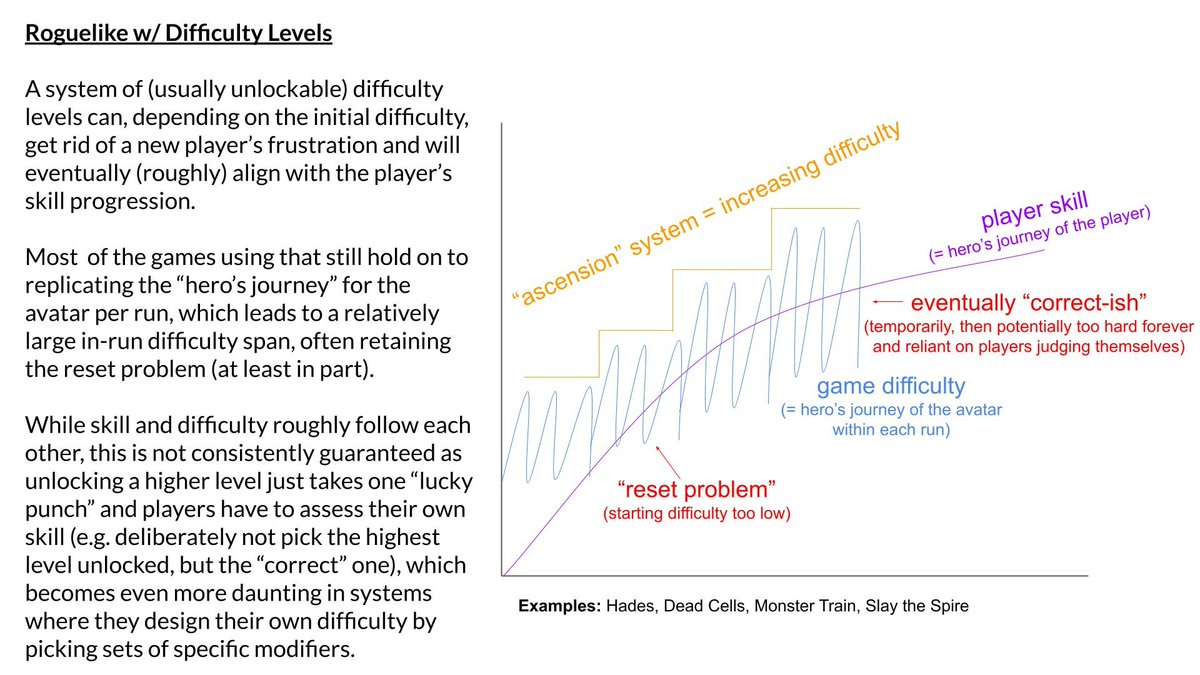

Back to the article, it also discusses idle games and correctly finds them to be about competence as well ("economic meta-game of progressing fastest" & "discovering the effect of the next upgrade"). It also hints at a connection to lifting mood and treating depression.
6/10
6/10
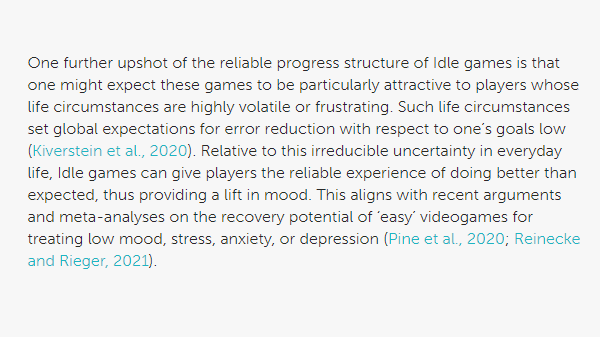
I'm not rejecting these suggested connections, but I see danger in using these kinds of games to "paint over" real issues. Beyond the likely "relapse", you're idolizing systems you really shouldn't: fischerdesign.medium.com/when-games-ido…
Also watch @ThoughtSlime:
7/10
Also watch @ThoughtSlime:
7/10

Back to the article, it also discusses Soulslike games at the other end of the spectrum to idle games, i.e. "too difficult". It finds that players are able to find competence gain in these games by pushing through, basically making them not be "too difficult" anymore.
8/10
8/10

Not arguing with that, but reducing the barrier of entry is still a good idea, and arguably the latest entry, Elden Ring, has done just that (to an extent).
I've written about the importance of "heuristic ladders" before, in the context of Artifact: fischerdesign.medium.com/artifact-vs-au…
9/10
I've written about the importance of "heuristic ladders" before, in the context of Artifact: fischerdesign.medium.com/artifact-vs-au…
9/10

Finally, the authors did a fantastic job compiling sources from academia and game design alike to fuse them them into a coherent, progressive theory. 👏
Also a shoutout to @gamemakerstk for highlighting the importance of alt text. Every tweet in the above thread has it.
10/10
Also a shoutout to @gamemakerstk for highlighting the importance of alt text. Every tweet in the above thread has it.
10/10
• • •
Missing some Tweet in this thread? You can try to
force a refresh














